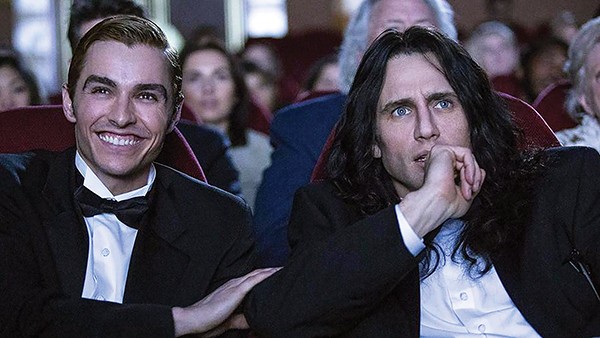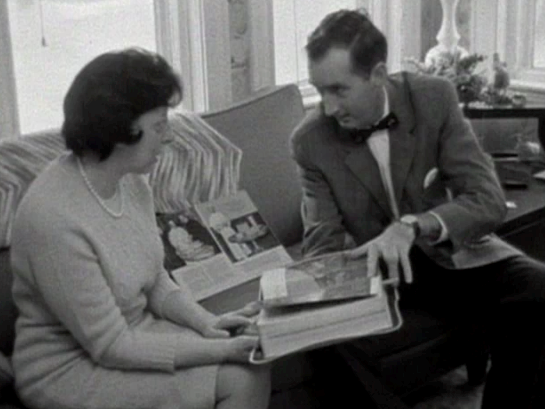Have you ever been at your job, or at school, or on the playing field, and felt like you’re faking it? It doesn’t matter if you’re actually good at something. All of your successes have been sheer dumb luck. One day, you’re going to be exposed as a fraud in front of all these people.
If these thoughts have ever crossed your mind, you’re not alone. It’s a full-blown psychological phenomenon called impostor syndrome. In the words of Wikipedia, “Despite external evidence of their competence, those exhibiting the syndrome remain convinced that they are frauds and do not deserve the success they have achieved.” The doctors who discovered imposter syndrome in the 1970s first identified it in highly successful women, but later studies found that 70 percent of the population had felt like that at one time or another. But the case of Tommy Wiseau raises the question: Is it still impostor syndrome if you actually are an impostor who is bad at their job?
Wiseau is the writer, director, and producer of The Room, the 21st century’s leading contender in the race for the Worst Film Ever. Even in Hollywood, a place where strange things roam, Wiseau is a weirdo. First of all, he wears a lot of belts. Not different belts at different times, but rather, many belts, all at once. He claims to be from New Orleans, but his accent is clearly Eastern European. No one knows how old he is — which, come to think of it, is really not that uncommon in Hollywood. And nobody knows where he got the enormous pile of money he used to make The Room. But one thing is certain — he didn’t have the faintest idea how to make a movie.

Dave (left) and James Franco make movie magic with their film about the making of The Room.
If you’ve never seen it before, The Room is kind of indescribable. Imagine a movie about love and betrayal made by an alien who has only the roughest idea of what humans look like and how they behave. In a recurring scene that epitomizes the whole thing, Wiseau and his friends Mark and Denny throw around a football while having vague conversations. At no point do you get the impression that any of them know what a football is for, or have ever seen a football game before, or even understand what kind of emotions a person throwing a football in the park with his friends would likely experience.
And yet, in the decade since it was released, The Room has found a large and enthusiastic audience among people who love bad film. There’s something endearing about the film’s hardscrabble ineptitude that you don’t get from $100 million debacles like Dracula Untold. Among the cult of The Room was James Franco, who was compelled to adapt The Disaster Artist, a memoir by Greg Sestero, who played Mark in the original production. In a deeply nested irony, the movie about the making of the worst movie ever made is actually really good.
Screenwriters Scott Neustadter and Michael Weber take inspiration from Ed Wood for the well-paced script, which wrings laughs from the increasingly ridiculous situations that arise during production without stooping to open mockery. Dave Franco, the director’s brother, stars as Greg Sestero, a blandly handsome, marginally talented guy who meets Wiseau in a San Francisco acting class and soon finds himself moving to L.A. to pursue stardom with the long-haired mystery man. Then, after years of frustration and an impeccably staged run-in with actual producer Judd Apatow, Wiseau decides he has had it with the audition treadmill and proclaims, “Hollywood reject us! We do eet on our own!”
It’s the familiar rallying cry of the indie filmmaker, even if delivered in a funny accent. James Franco, the comedic leading man who directs William Faulkner adaptations in his spare time, surely knows that feeling. He and his co-conspirator Seth Rogen, who plays The Room‘s beleaguered script supervisor, have been an insurgent force in mainstream filmmaking for a decade now. You don’t make The Interview without getting a few doors slammed in your face. Some actors would just get the weird tics down and ham it up, but Franco’s portrayal of Tommy Wiseau is a living portrait of impostor syndrome. You cringe with every inappropriate gesture, idiotic utterance, and awful decision, while also feeling a flash of recognition of all the times you’ve faked it and gotten away with it.
The Disaster Artist seems like it started as an excuse for Franco and Rogen’s crew of Hollywood stoner buddies to recreate their favorite hilariously bad scenes from The Room, but when Wiseau cries in the lobby at his labor of love’s disastrous premiere, the audience sniffles along. By directing and acting in a movie about a bad actor/director, Franco the movie star made himself vulnerable — and created the best film of his career.

